While social inequality is one of the biggest challenges faced by societies, an important strategy to raise the equality of countries is the development of a national health care system that focuses on both treatment and health promotion. In this context, Chulalongkorn University’s College of Public Health Sciences organized an academic conference themed “Sustainability of Universal Healthcare Coverage”, a relevant topic for the Asian region to be addressed through national multilateral efforts.
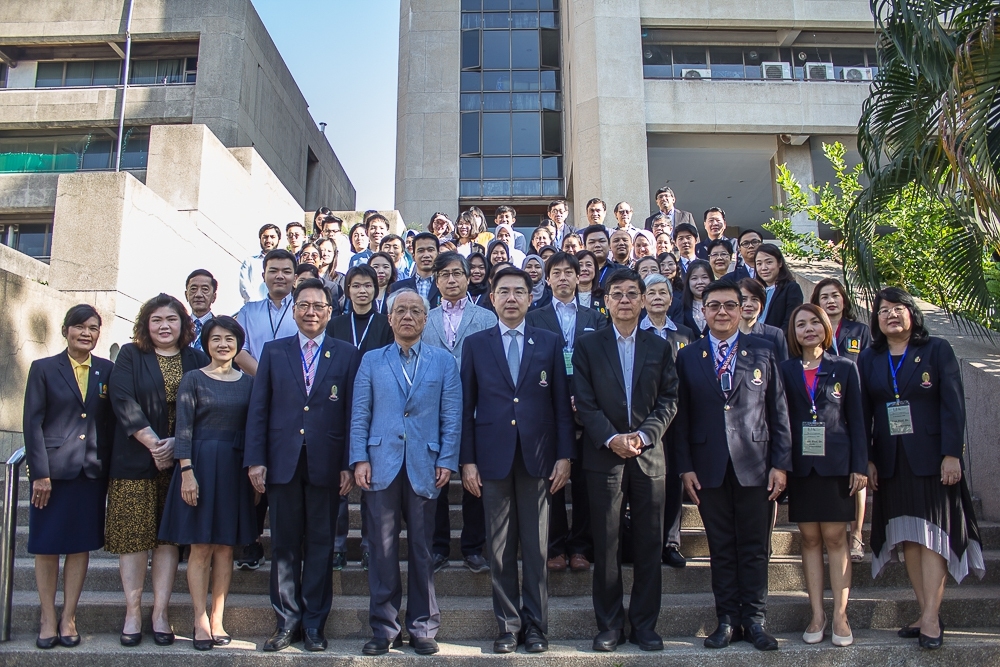
Group photo of conference delegates
This international conference aimed to exchange resources and knowledge in order to enhance the academic strength of participants. The conference, partially supported by AUA, had several representatives from seven AUA member universities taking part: Chulalongkorn University (CU), National University of Singapore (NUS), Nazarbayev University (NU), Seoul National University (SNU), Universiti Malaya (UM), The University of Tokyo (UTokyo) and University of Yangon (UY).
The conference began with the opening ceremony, attended by Prof. Bundhit Eua-arporn, President of CU, who delivered the welcoming remarks. Following this, the first special lecture took place, entitled “Concept of Universal Health Care Coverage (UHC) and Health Promotion in Thailand”, delivered by Dr. Somsak Chunharas, President of The National Health Foundation of Thailand.
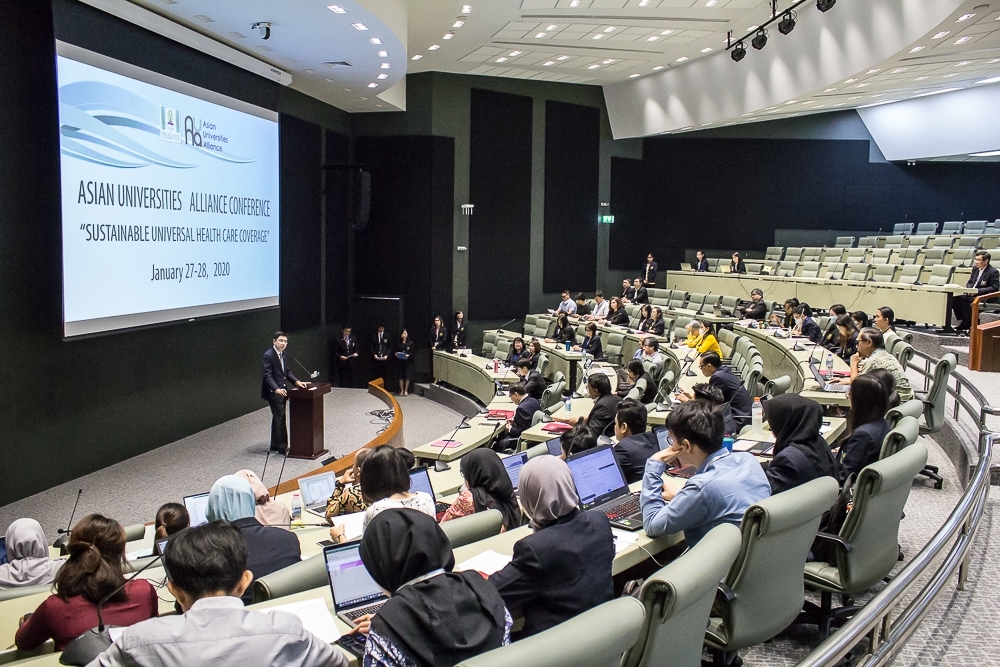
CU President Prof. Bundhit Eua-arporn delivering the welcome remarks
The first panel discussion, entitled “UC System in Global, Regional and Country Level: Achievements and Challenges of UC”, was attended by Prof. Sathirakorn Pongpanich, Dean, College of Public Health Sciences, CU; Prof. Than Tun Sein, Anthropology Department, UY; and Prof. Chan Chee Khoon, Visiting Scholar, Centre for Latin American Studies, UM. Prof. Pongpanich presented on Thailand’s experience of UHC, including the history, current status and advantages and disadvantages. Prof. Than Tun Sein provided Myanmar’s background in UCH, highlighting the four main strategies in the country. Prof. Khoon shared Malaysia’s challenges of UHC, which include non-communicable diseases, state capitalism and migrant labor.
Two special lectures were held on the morning of the second day of the conference. The first, entitled “Universal Health Care Coverage (UC) and its Impact to Health Equity, UC and Health Promotion” was delivered by Prof. Teo Yik Ying, Dean, Saw Swee Hock School of Public Health, NUS, who discussed a three-dimensional model to consider when moving towards UHC. The second lecture, entitled “Reform of UHC Program and its Sustainability”, was delivered Prof. Siripen Supakankunti, Faculty of Economics, CU, who talked about UHC under three public health insurance schemes.
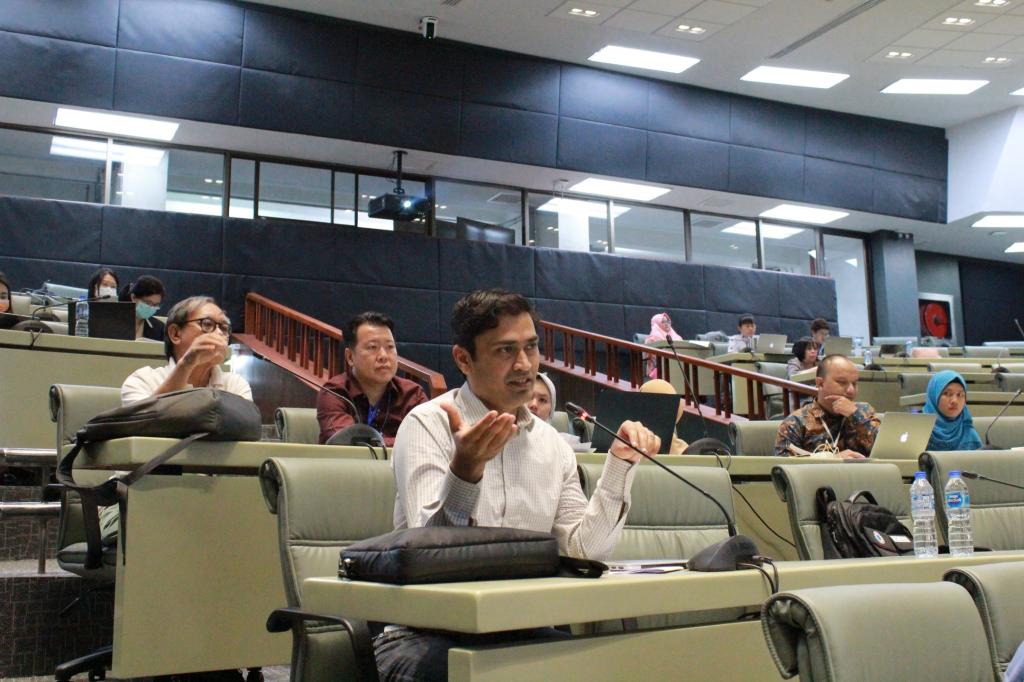
Conference delegate during a discussion
In the afternoon, two more panel discussions took place which focused on countries’ experiences of UHC and its sustainability. In the second panel discussion, Prof. Chang-yup Kim of SNU, discussed the new challenges in Korea, with the emerging socio-economic changes such as rapid aging and high rate of old age poverty, sustainability of premium based financing, depopulation in rural areas and market failure. Prof. Naoki Kondo, School of Public Health, UTokyo, provided insights on “Community Based Integrated Care”, sharing Japan’s experiences of UHC in a high aging society. Prof. Supakankunti also joined this panel discussion, highlighting that equity or fairness in service use, quality of service and financial protection are the fundamental concepts of UHC.
In the third panel discussion of the conference, Asst. Prof. Cynthia Chen from NUS, discussed the health expenditure of Singapore and provided an overview of health financing in the country. Prof. Tae-Jin Lee of SNU, discussed the financing of healthcare in Korea, including recent policies and challenges to sustainability. Dr. Vinod Kumar Pandey from NU discussed the National Health Protection Scheme in India and its benefits.
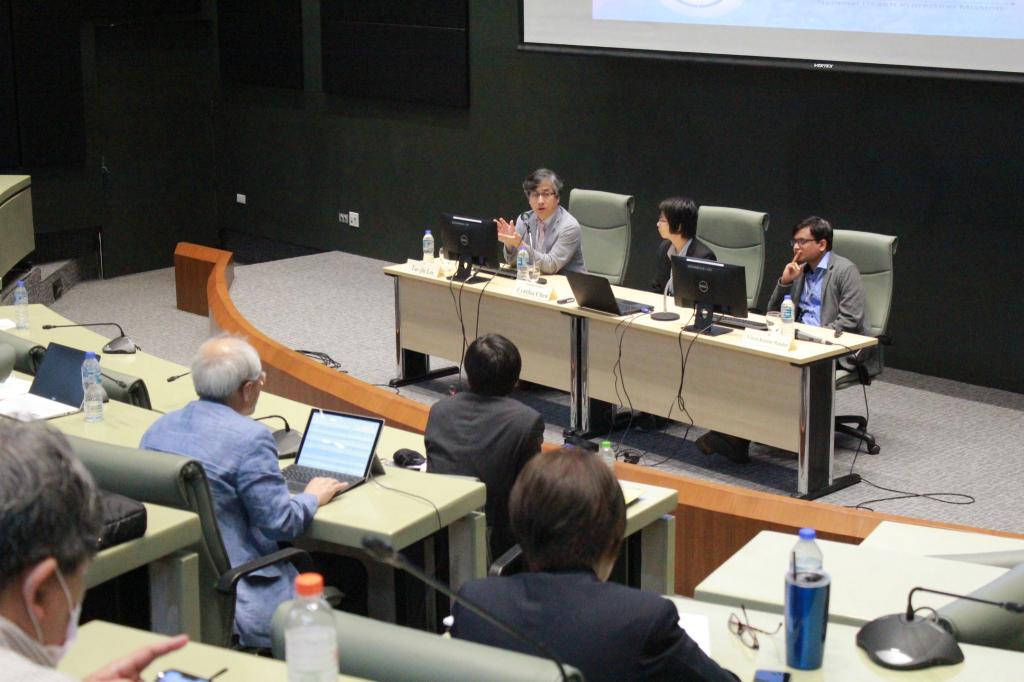
A panel discussion during the conference
Participants also had the opportunity to go on field visits in groups to places of interest such as the Bangkok Metropolitan Administration (BMA) Public Health Center No. 29 and Siripath Medical Primary Care Unit (PCU), a UHC public private partnership. At the end of the conference, groups presented their feedback from the field visits. The first group, who visited BMA, noticed the good social cohesion at the center and that the primary health center was quite large, with a high number of doctors and nurses providing many primary care services. The second group, who visited the PCU, highlighted the payment system of the PCU center which seemed to be very efficient, and the efforts taken to ensure greater social harmony across different communities.
Overall, the conference was a success and a necessary starting point for discussing and sharing on the pertinent topic of Universal Health Care Coverage. Although at present there is no one perfect or best model currently employed by different countries, in the future there may be new ideas and developments to ensure greater health equality for all people.
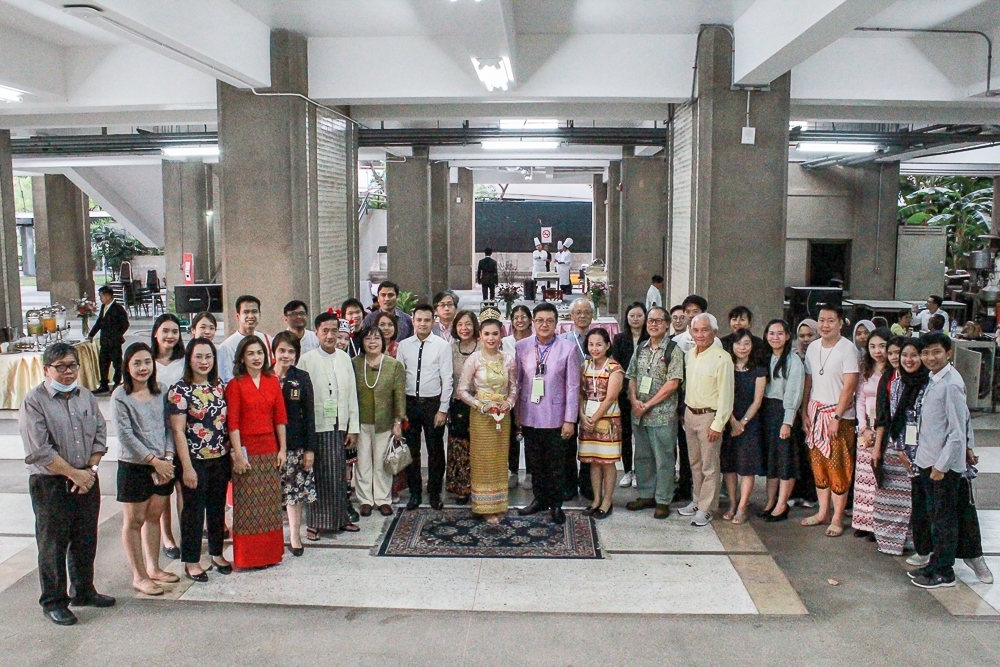
Group photo of conference participants